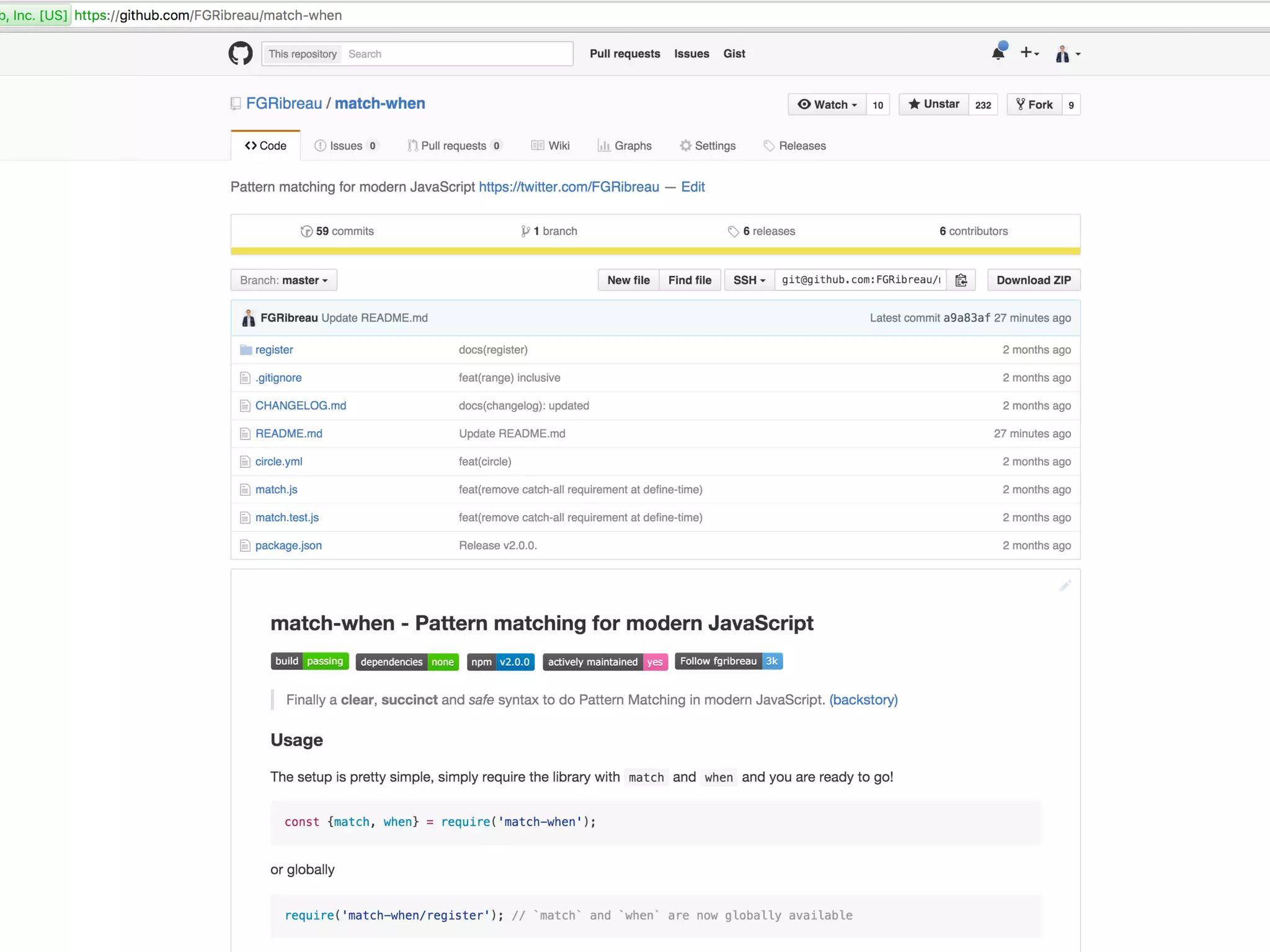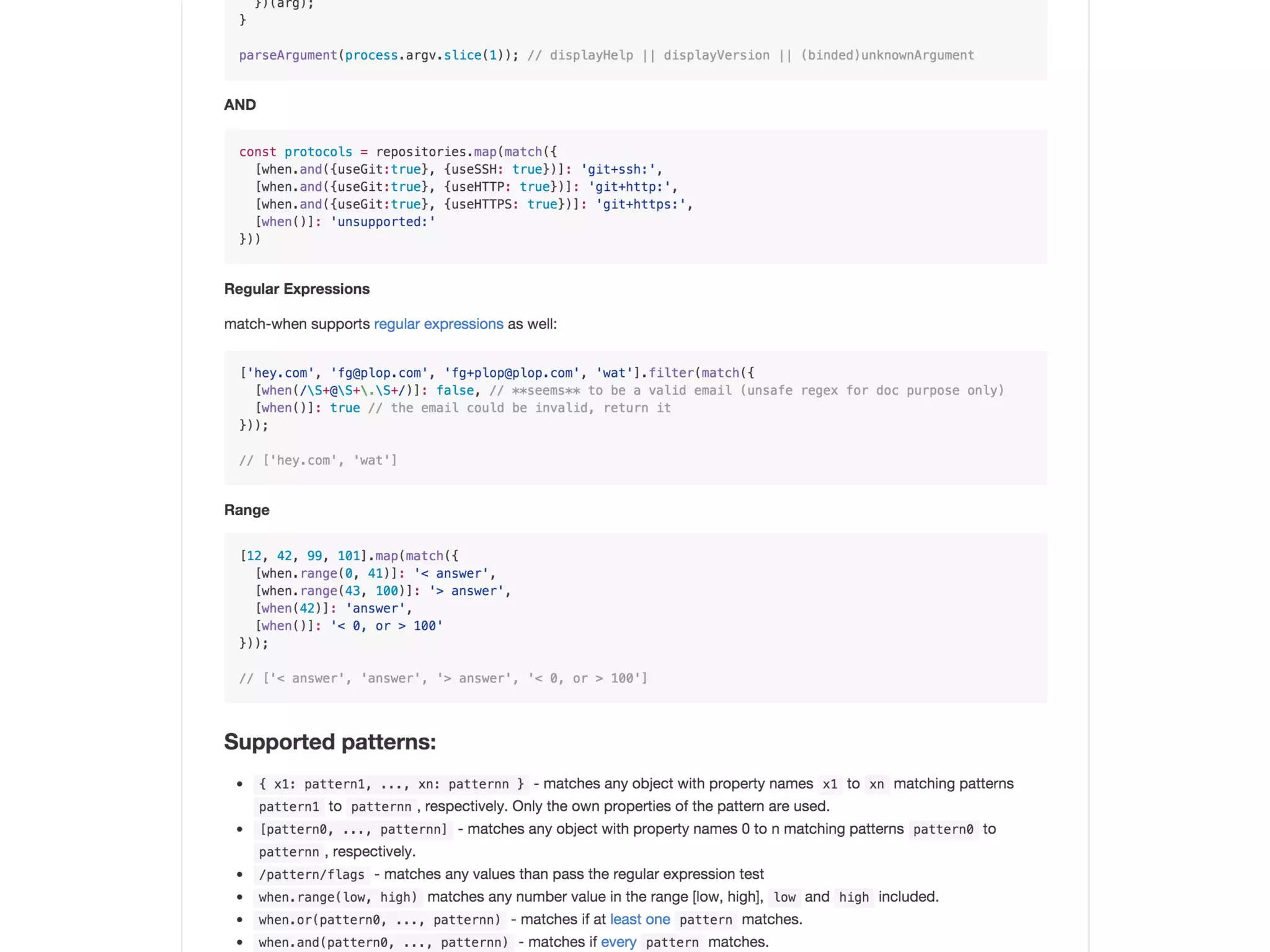The document discusses the implementation of pattern-matching in JavaScript, highlighting its syntactical challenges and proposing solutions for achieving valid syntax. It explores the use of computed property names and addresses semantic issues with mapping objects and properties in JavaScript. The author illustrates various examples and aims to demonstrate how pattern-matching can be effectively utilized despite the limitations of the language.
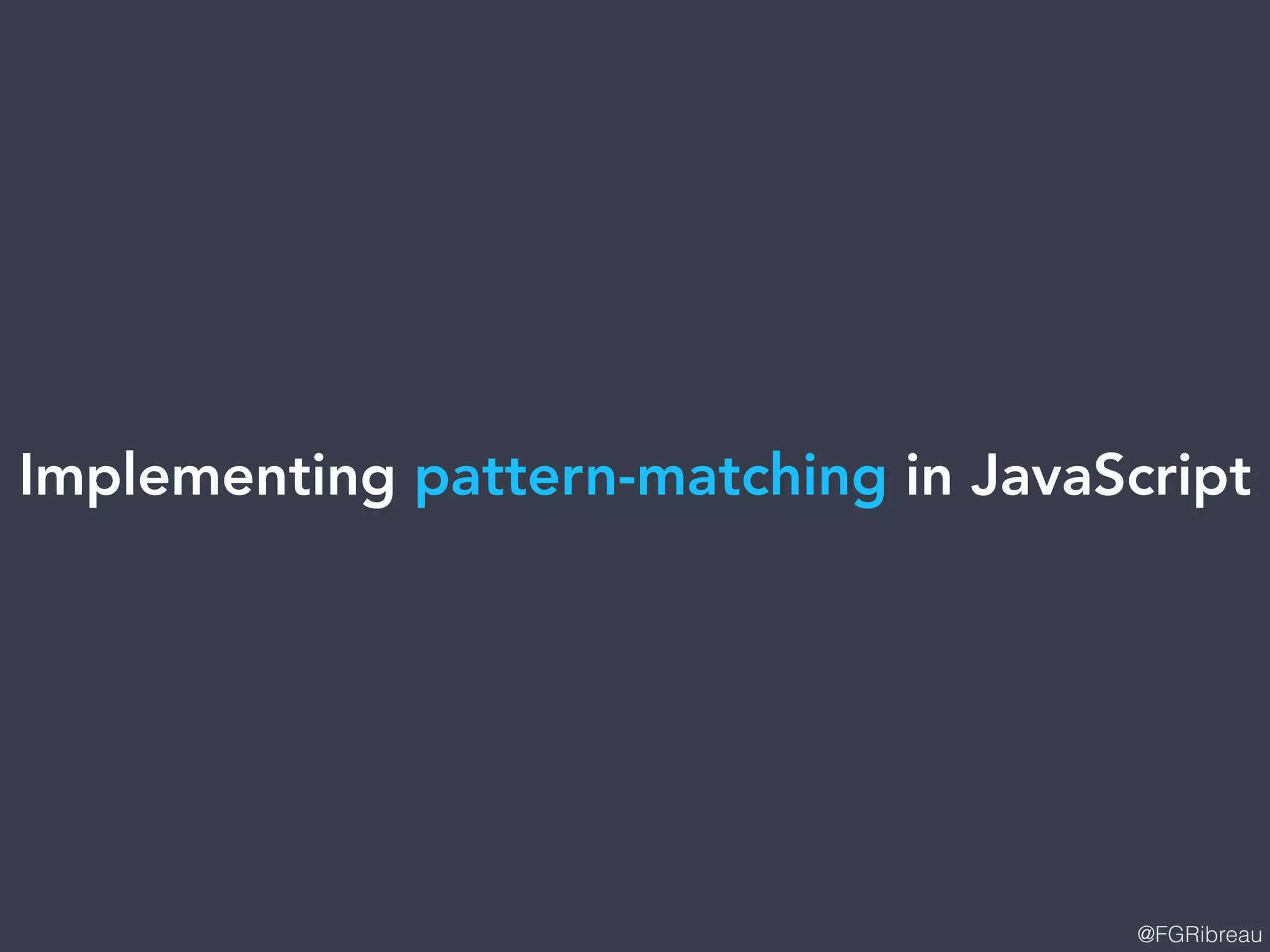
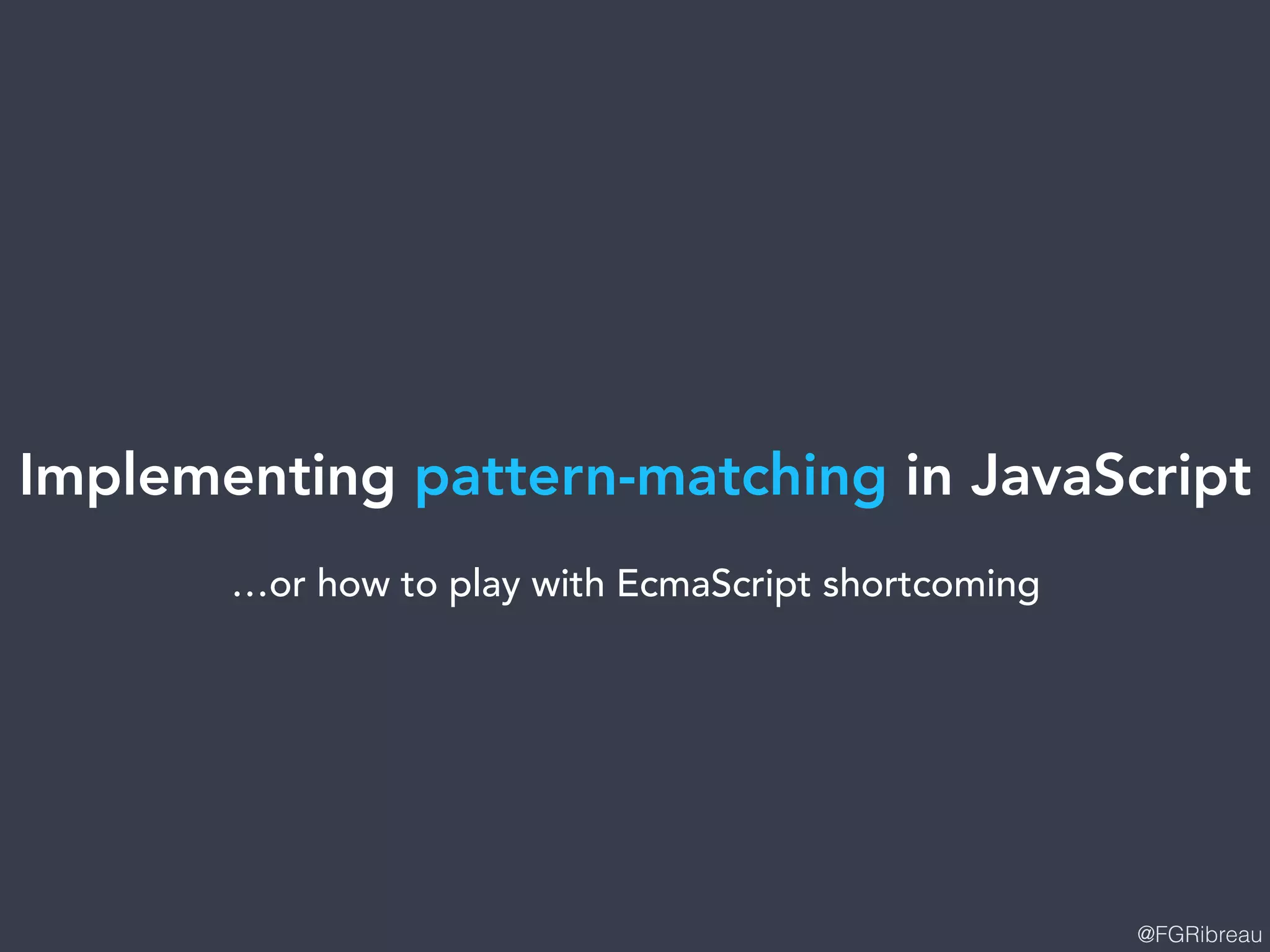

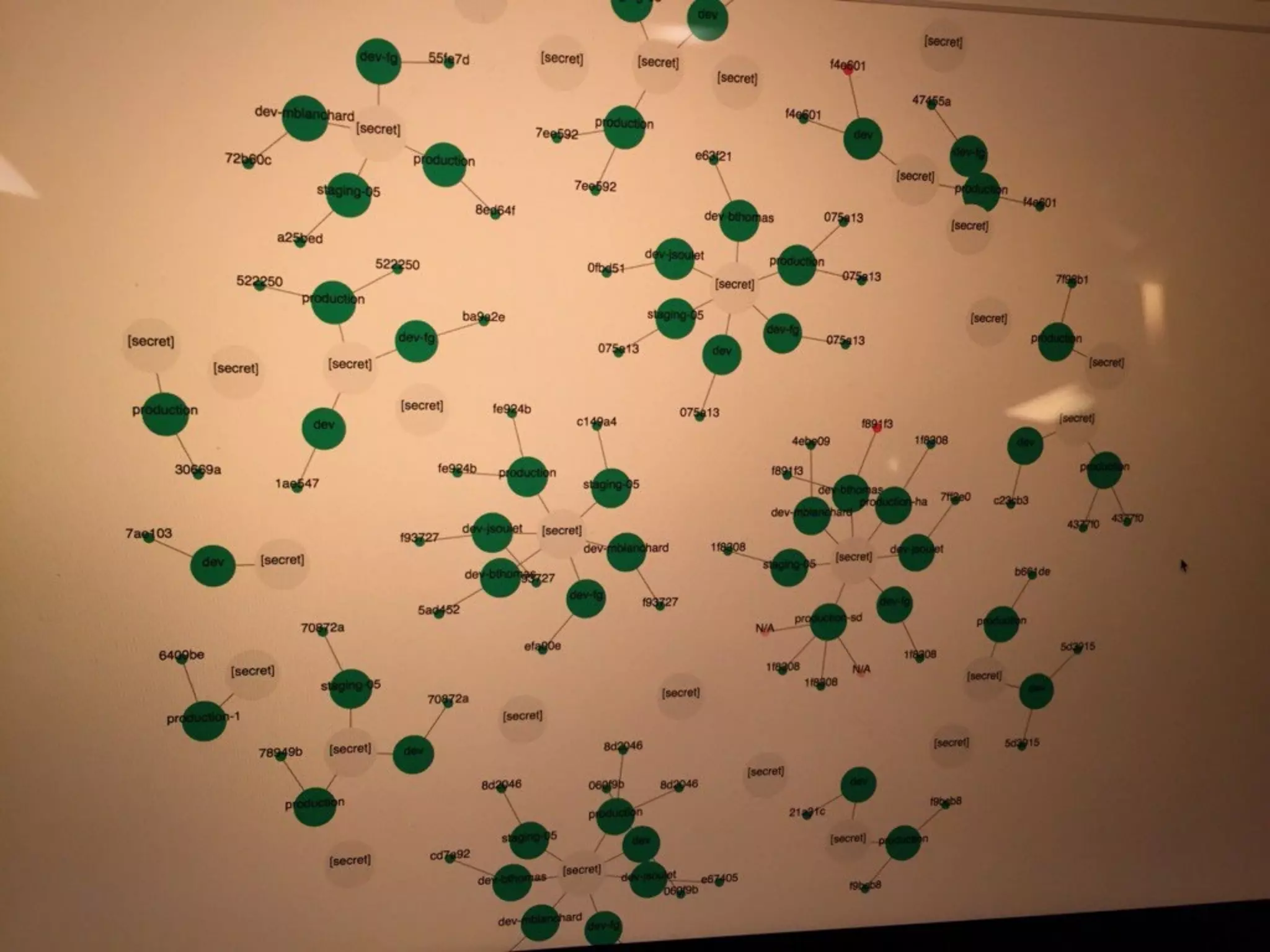
![@FGRibreau
_.flatten(links).map(link => {
[{protocol: 'HTTP'}]: => 1,
[{protocol: 'AMQP'}]: => 2
});
It would it be awesome to use some pattern-matching there right?](https://image.slidesharecdn.com/match-when-short-160313111930/75/Implementing-pattern-matching-in-JavaScript-short-version-5-2048.jpg)
![@FGRibreau
SyntaxError: /Users/FG/www/iadvize-services-
orchestration-tools/src/api/src/repositoryManagers/
github.js: Unexpected token (185:32)
183 |
184 | _.flatten(links).forEach(link => {
> 185 | [{protocol: 'HTTP'}]: => 1,
| ^
186 | [{protocol: 'AMQP'}]: => 2
187 | });
188 |
... and of course it’s not JS valid syntax](https://image.slidesharecdn.com/match-when-short-160313111930/75/Implementing-pattern-matching-in-JavaScript-short-version-6-2048.jpg)

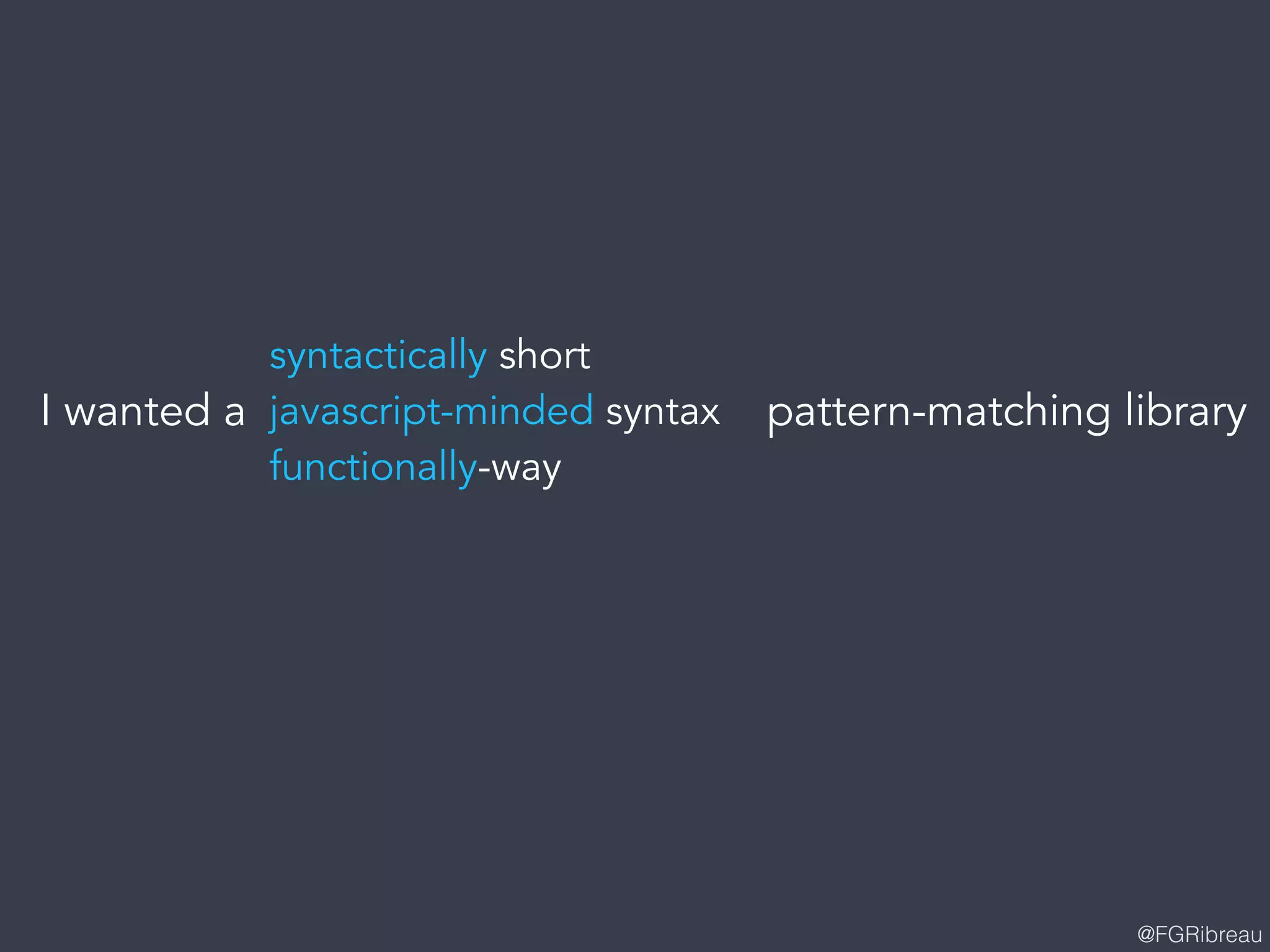
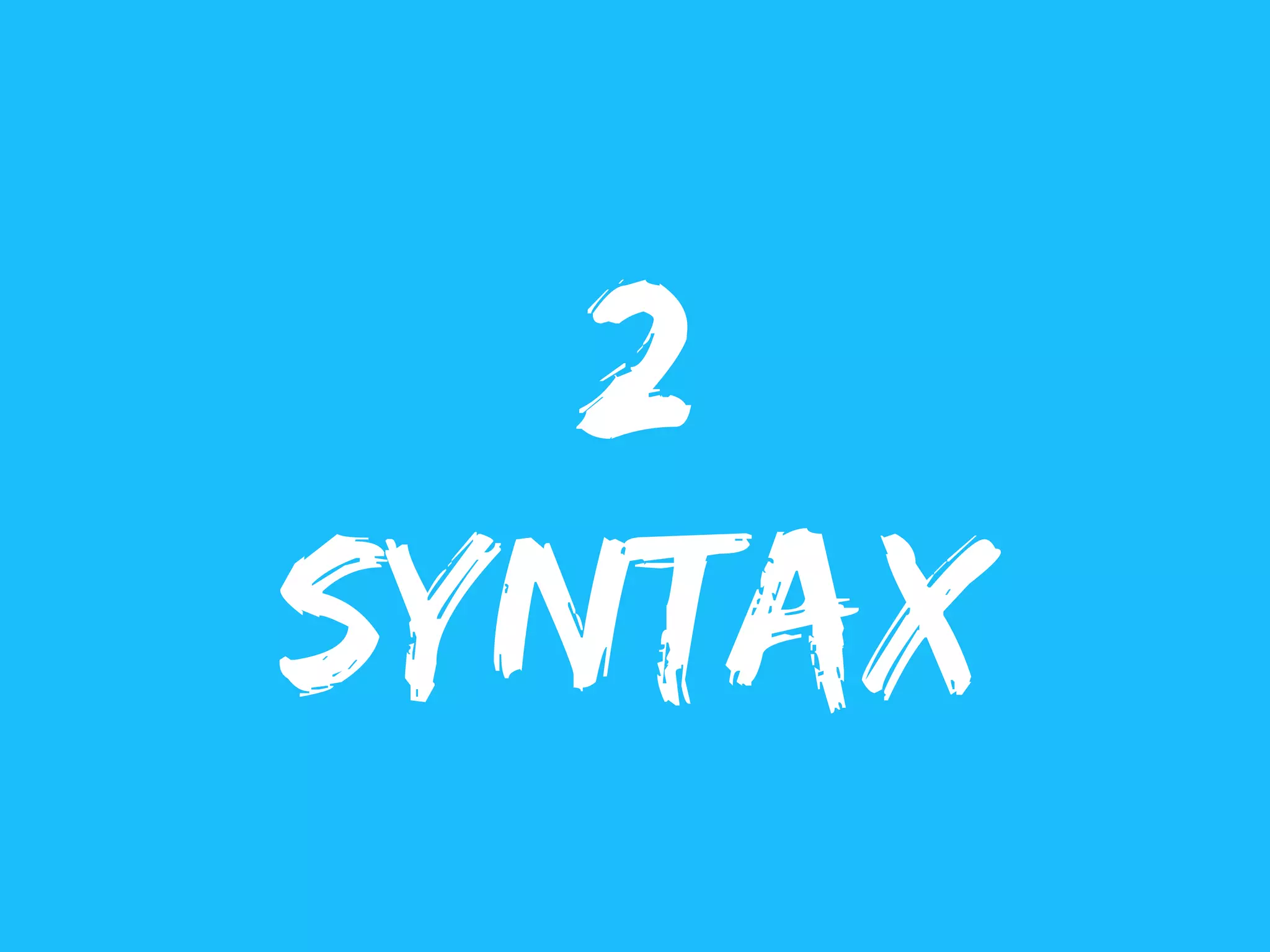
![@FGRibreau
links.map(link => {
[{protocol: 'HTTP'}]: => 1,
[{protocol: 'AMQP'}]: => 2
});
Ok, so this is not valid,
what precisely is not valid and
how can we make it valid?](https://image.slidesharecdn.com/match-when-short-160313111930/75/Implementing-pattern-matching-in-JavaScript-short-version-10-2048.jpg)
![@FGRibreau
links.map(link => {
[{protocol: 'HTTP'}]: () => 1,
[{protocol: ‘AMQP'}]: () => 2
});
links.map(link => {
[{protocol: 'HTTP'}]: 1,
[{protocol: ‘AMQP'}]: 2
});
links.map(link => {
[{protocol: 'HTTP'}]: => 1,
[{protocol: 'AMQP'}]: => 2
});](https://image.slidesharecdn.com/match-when-short-160313111930/75/Implementing-pattern-matching-in-JavaScript-short-version-11-2048.jpg)
![@FGRibreau
{
[{protocol: ‘HTTP'}]: 1,
[{protocol: ‘AMQP’}]: 2
}
The rest is syntactically valid
ES6 "computed property names"
{
[{protocol: ‘HTTP’}]: () => 1,
[{protocol: ‘AMQP’}]: () => 2
}](https://image.slidesharecdn.com/match-when-short-160313111930/75/Implementing-pattern-matching-in-JavaScript-short-version-12-2048.jpg)
![@FGRibreau
links.map(link => {})
[undefined, undefined]
links.map(link => {1})
[undefined, undefined]
links.map(link => {return 1})
[1,1]
links.map(link => 1)
[1,1]
Syntactically valid, semantically invalid
… but then I won't have my pattern matching.](https://image.slidesharecdn.com/match-when-short-160313111930/75/Implementing-pattern-matching-in-JavaScript-short-version-13-2048.jpg)

![@FGRibreau
If I go from there…
_.flatten(links).map(link => {
[{protocol: 'HTTP'}]: => 1,
[{protocol: 'AMQP'}]: => 2
});](https://image.slidesharecdn.com/match-when-short-160313111930/75/Implementing-pattern-matching-in-JavaScript-short-version-15-2048.jpg)
![@FGRibreau
If I go from there…
_.flatten(links).map(link => {
[{protocol: 'HTTP'}]: => 1,
[{protocol: 'AMQP'}]: => 2
});
_.flatten(links).map(match({
[{protocol: 'HTTP'}]: 1,
[{protocol: 'AMQP'}]: 2
}));
…to there…](https://image.slidesharecdn.com/match-when-short-160313111930/75/Implementing-pattern-matching-in-JavaScript-short-version-16-2048.jpg)
![@FGRibreau
… then it’s syntactically correct!
_.flatten(links).map(match({
[{protocol: 'HTTP'}]: 1,
[{protocol: 'AMQP'}]: 2
}));](https://image.slidesharecdn.com/match-when-short-160313111930/75/Implementing-pattern-matching-in-JavaScript-short-version-17-2048.jpg)
![@FGRibreau
… then it’s syntactically correct!
_.flatten(links).map(match({
[{protocol: 'HTTP'}]: 1,
[{protocol: 'AMQP'}]: 2
}));](https://image.slidesharecdn.com/match-when-short-160313111930/75/Implementing-pattern-matching-in-JavaScript-short-version-18-2048.jpg)
![@FGRibreau
… would be great too !
const linkNumber = match(link,{
[{protocol: 'HTTP'}]: 1,
[{protocol: 'AMQP'}]: 2
});](https://image.slidesharecdn.com/match-when-short-160313111930/75/Implementing-pattern-matching-in-JavaScript-short-version-19-2048.jpg)

![@FGRibreau
{
'[object Object]': 2
}
evaluates to
ES6 "computed property names"
{
[{protocol: 'HTTP'}]: 1,
[{protocol: 'AMQP'}]: 2
}](https://image.slidesharecdn.com/match-when-short-160313111930/75/Implementing-pattern-matching-in-JavaScript-short-version-21-2048.jpg)


![@FGRibreau
evaluates to
ES6 "computed property names"
{
[when({protocol: ‘HTTP’})]: 1,
[when({protocol: ‘AMQP'})]: 2
}
{
'{"protocol":"HTTP"}': 1,
'{"protocol":"AMQP"}': 2
}](https://image.slidesharecdn.com/match-when-short-160313111930/75/Implementing-pattern-matching-in-JavaScript-short-version-24-2048.jpg)
![@FGRibreau
evaluates to
ES6 "computed property names"
{
[when({protocol: ‘HTTP’})]: 1,
[when({protocol: ‘AMQP'})]: 2
}
{
'{"protocol":"HTTP"}': 1,
'{"protocol":"AMQP"}': 2
}](https://image.slidesharecdn.com/match-when-short-160313111930/75/Implementing-pattern-matching-in-JavaScript-short-version-25-2048.jpg)
![@FGRibreau
Order is lost by match’s object
.map(match({
[when.range(0, 43)]: 42,
[when(42)]: 72
}))
when.range(0,43) => '["Symbol(match.pattern.RANGE)",0,43]'
when(42) => '[42]'
JS objects are an unordered collection of properties](https://image.slidesharecdn.com/match-when-short-160313111930/75/Implementing-pattern-matching-in-JavaScript-short-version-26-2048.jpg)
![@FGRibreau
Fixing properties declaration
?
.map(match({
[when.range(0, 43)]: 42,
[when(42)]: 72
}))
.map(match(new Map([
[ when.range(0, 43), 42 ],
[ when(42), 72 ],
[ when(), 'never should be hit' ]
])))
NO!](https://image.slidesharecdn.com/match-when-short-160313111930/75/Implementing-pattern-matching-in-JavaScript-short-version-27-2048.jpg)
![@FGRibreau
Fixing properties declaration
?
.map(match({
[when.range(0, 43)]: 42,
[when(42)]: 72
}))
.map(match([
[ when.range(0, 43), 42 ],
[ when(42), 72 ],
[ when(), 'never should be hit' ]
]))
NO!](https://image.slidesharecdn.com/match-when-short-160313111930/75/Implementing-pattern-matching-in-JavaScript-short-version-28-2048.jpg)


![@FGRibreau
Fixing properties declaration
.map(match({
[when.range(0, 43)]: 42,
[when(42)]: 72
}))
- same callsite
- single thread
- sequential evaluation](https://image.slidesharecdn.com/match-when-short-160313111930/75/Implementing-pattern-matching-in-JavaScript-short-version-31-2048.jpg)
![@FGRibreau
Fixing properties declaration
.map(match({
[when.range(0, 43)]: 42,
[when(42)]: 72
}))
- same callsite
- single thread
- sequential evaluation](https://image.slidesharecdn.com/match-when-short-160313111930/75/Implementing-pattern-matching-in-JavaScript-short-version-32-2048.jpg)
![@FGRibreau
Fixing properties declaration
when.range(0,43) => '[0, "Symbol(match.pattern.RANGE)",0,43]'
when(42) => '[1, 42]'
… #problemSolved …
.map(match({
[when.range(0, 43)]: 42,
[when(42)]: 72
}))
- same callsite
- single thread
- sequential evaluation](https://image.slidesharecdn.com/match-when-short-160313111930/75/Implementing-pattern-matching-in-JavaScript-short-version-33-2048.jpg)
![@FGRibreau
How to get matched value?
const fact = match({
[when(0)]: 1,
[when()]: n * fact(n-1)
});
fact(10);
n is not defined](https://image.slidesharecdn.com/match-when-short-160313111930/75/Implementing-pattern-matching-in-JavaScript-short-version-34-2048.jpg)
![@FGRibreau
How to get matched value?
const fact = match({
[when(0)]: 1,
[when()]: n * fact(n-1)
});
fact(10);
simple, use a function:
const fact = match({
[when(0)]: 1,
[when()]: (n) => n * fact(n-1)
});
fact(10); // 3628800](https://image.slidesharecdn.com/match-when-short-160313111930/75/Implementing-pattern-matching-in-JavaScript-short-version-35-2048.jpg)
![@FGRibreau
How to get matched value?
const fact = match({
[when(0)]: 1,
[when()]: n * fact(n-1)
});
fact(10);
simple, use a function:
const fact = match({
[when(0)]: 1,
[when()]: (n) => n * fact(n-1)
});
fact(10); // 3628800](https://image.slidesharecdn.com/match-when-short-160313111930/75/Implementing-pattern-matching-in-JavaScript-short-version-36-2048.jpg)

